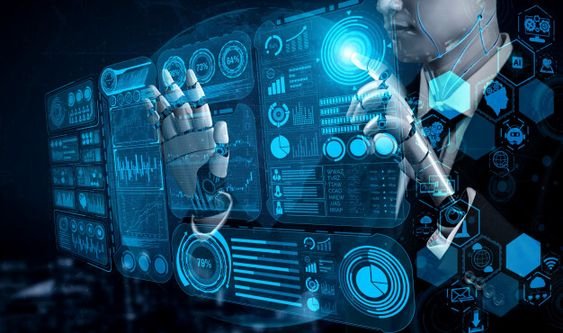
Artificial Intelligence (AI) no longer sits on the sidelines of cybersecurity—it now drives the entire defense strategy of many UK-based firms. With cyberattacks growing in sophistication and frequency, businesses across industries have embraced AI-powered tools to identify threats, neutralize risks, and adapt in real-time. These tools go beyond basic antivirus software and firewalls. They use machine learning, natural language processing, and behavioral analytics to protect data, infrastructure, and operations.
UK firms now rely heavily on these AI tools not just for protection, but for proactive defense. In this article, we explore the most advanced AI-driven cybersecurity tools currently in use in the UK, and how firms integrate them into their tech ecosystem.
The Need for AI in Cybersecurity
Traditional security systems rely on predefined rules and known attack signatures. However, hackers have become more creative. They design polymorphic malware, zero-day exploits, and socially engineered attacks that bypass these outdated defenses.
UK firms face daily threats from phishing, ransomware, insider breaches, and nation-state actors. In response, they have turned to AI, which continuously learns and adapts. AI systems detect anomalies in real time, isolate threats quickly, and recommend actions instantly—capabilities no human security team can match at scale.
Key AI Cybersecurity Tools Used in the UK
1. Darktrace
Cambridge-based Darktrace stands as one of the most prominent AI-driven cybersecurity companies in the UK. Its AI mimics the human immune system to detect, respond to, and neutralize threats autonomously.
Firms across finance, healthcare, and critical infrastructure rely on Darktrace’s Enterprise Immune System and Antigena platforms. These tools watch every digital heartbeat of a network and identify abnormal behavior, even if it’s a new or unknown threat. Once the AI detects a risk, it responds in milliseconds—quarantining files, restricting access, or cutting off communications.
Darktrace doesn’t need prior knowledge of a threat to act. It uses unsupervised machine learning to adapt to every organization’s unique pattern of life.
2. Vectra AI
Several UK firms have adopted Vectra AI, especially those managing hybrid cloud environments. Vectra focuses on detecting cyber threats within cloud platforms, data centers, and remote devices. Its AI analyzes network metadata to find hidden attackers who use credential abuse or lateral movement techniques.
The tool scores threats by severity and offers clear, actionable insights. It doesn’t flood security teams with false positives. Instead, it prioritizes high-risk behavior and streamlines response efforts.
Many UK financial services and law firms prefer Vectra AI because it uncovers insider threats and compromised accounts that traditional monitoring tools often miss.
3. CrowdStrike Falcon
CrowdStrike’s AI-powered Falcon platform continues to gain traction across UK enterprises for endpoint protection. Falcon detects and blocks threats at the device level, using behavioral AI and threat intelligence.
Its cloud-native design enables real-time visibility across thousands of devices, even in remote work scenarios. UK firms with large workforces or BYOD (bring-your-own-device) policies trust Falcon to monitor and protect their endpoints around the clock.
CrowdStrike also integrates with UK government frameworks and compliance standards, making it a favorite among public sector organizations.
4. Cylance (by Blackberry)
Cylance uses predictive AI to stop malware before it executes. It doesn’t rely on signature databases or daily updates. Instead, it uses deep learning to evaluate a file’s DNA and determine if it poses a risk.
UK tech firms, especially startups and mid-size companies, choose CylancePROTECT for its lightweight performance and pre-execution prevention. It also requires minimal internet access, making it ideal for remote or offline devices.
Cylance’s AI model trains on billions of files and adapts quickly. It prevents zero-day attacks and fileless malware effectively, which traditional tools usually fail to catch.
5. Microsoft Defender for Endpoint
Microsoft has embedded powerful AI in its Defender suite, which many UK firms use due to its native integration with the Windows ecosystem and Microsoft 365.
Defender for Endpoint leverages AI to detect advanced persistent threats, ransomware, and network anomalies. Its threat and vulnerability management module helps firms prioritize patches and harden their systems continuously.
UK businesses benefit from Defender’s seamless integration with Azure and its use of the Microsoft Threat Intelligence network, which collects global attack data and uses AI to update protections in real time.
6. Tessian
Tessian focuses on one of the weakest links in cybersecurity—email. Headquartered in London, Tessian uses AI to stop phishing, misdirected emails, and insider threats caused by human error.
UK law firms, consulting agencies, and financial institutions use Tessian to prevent employees from accidentally leaking confidential information. Its machine learning engine understands user behavior and flags emails that seem unusual or suspicious.
Unlike spam filters, Tessian doesn’t rely on blacklists. It reads context and detects threats from both internal and external senders.
AI-Powered SOCs in the UK
Some UK firms have gone a step further by building AI-driven Security Operations Centers (SOCs). These SOCs use AI to automate log analysis, incident triage, threat intelligence gathering, and even incident response.
Companies like BT, Vodafone, and HSBC operate AI-enhanced SOCs that provide 24/7 protection. These centers combine human analysts with AI tools to boost threat hunting capabilities. As a result, they reduce response time from days to minutes.
By automating repetitive tasks, AI frees up security professionals to focus on more complex issues and strategy.
Key Benefits Realized by UK Firms
AI has delivered measurable improvements for UK firms in several key areas:
-
Faster Detection and Response: AI tools identify threats within seconds and respond before damage occurs.
-
Reduced False Positives: Instead of chasing alerts all day, security teams receive high-confidence insights.
-
Scalability: AI adapts as the organization grows, without needing exponential increases in staff.
-
Cost Efficiency: Automated responses and fewer breaches lead to cost savings.
-
Regulatory Compliance: AI tools help meet GDPR, FCA, and ISO 27001 requirements through continuous monitoring and reporting.
Future Trends
The role of AI in UK cybersecurity will continue to grow. Expect more firms to integrate AI into DevSecOps pipelines, automate threat modeling during software development, and deploy AI at the edge—especially for IoT security.
Quantum-safe cryptography will also emerge as a priority, and AI will help assess encryption resilience and manage transitions. In addition, generative AI will play a dual role—it may fuel deepfake phishing threats but will also create more realistic training simulations for employees.
UK regulators have also started to look at AI accountability in cybersecurity. New guidelines will likely emerge around transparency, fairness, and ethical AI use in threat analysis.
Conclusion
UK firms no longer view AI in cybersecurity as a luxury—it has become a necessity. By deploying tools like Darktrace, CrowdStrike Falcon, Vectra AI, and Tessian, they have fortified their defenses against a rising tide of cyber threats.
These firms act fast, stay agile, and let AI do the heavy lifting. As cyberattacks grow in complexity, so will the tools that defend against them. In the UK, AI now leads the charge in safeguarding the digital future.








